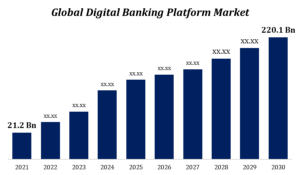Exploring the Impact of Fintech on Traditional Banking Models
The financial industry is experiencing a seismic shift, driven largely by the rapid rise of financial technology, or fintech. What began as a wave of startups offering innovative payment solutions and peer-to-peer lending has now evolved into a full-scale disruption of traditional banking models. As fintech continues to gain momentum, it is reshaping how financial services are delivered, challenging conventional banking institutions to adapt or risk obsolescence.
The Rise of Fintech: A Brief Overview
Fintech encompasses a broad range of technologies that are transforming the financial services industry. From mobile banking and digital wallets to blockchain and robo-advisors, fintech companies are leveraging cutting-edge technology to offer faster, more efficient, and more accessible financial services. These innovations have not only democratized access to financial products but also created new expectations among consumers for convenience, speed, and personalized experiences.
Key Areas Where Fintech is Impacting Traditional Banking
- Payments and Transactions
One of the most visible impacts of fintech on traditional banking is in the area of payments. Digital wallets, mobile payment apps, and peer-to-peer payment platforms like PayPal, Venmo, and Square have revolutionized how consumers and businesses transfer money. These platforms offer instant, low-cost transactions, often bypassing the need for traditional bank accounts. In response, banks have had to develop and integrate their own digital payment solutions, such as Zelle, to remain competitive.
- Lending and Credit
Fintech has also made significant inroads into the lending and credit space. Online lending platforms like LendingClub and SoFi use data analytics and AI to assess credit risk, offering loans to individuals and small businesses more quickly and with less bureaucracy than traditional banks. This has put pressure on banks to streamline their own lending processes and explore new ways to assess creditworthiness beyond traditional credit scores.
- Wealth Management and Investment
Robo-advisors, such as Betterment and Wealthfront, are disrupting the wealth management industry by offering automated, algorithm-driven financial planning services. These platforms provide low-cost investment management, making it accessible to a broader audience. In response, many traditional financial institutions have launched their own robo-advisory services or partnered with fintech firms to offer hybrid models that combine digital and human advisory services.
- Blockchain and Cryptocurrencies
Blockchain technology and cryptocurrencies like Bitcoin have introduced new paradigms in finance, particularly in areas such as cross-border payments, digital asset trading, and decentralized finance (DeFi). While banks have been slow to embrace cryptocurrencies, many are now exploring blockchain technology for its potential to increase transparency, reduce fraud, and streamline processes such as clearing and settlement. Central banks are also investigating the issuance of digital currencies, a move that could further blur the lines between traditional banking and fintech.
- RegTech and Compliance
Regulatory technology, or RegTech, is another area where fintech is making an impact. RegTech solutions use AI, machine learning, and big data to help financial institutions comply with regulatory requirements more efficiently and accurately. This is particularly important as financial regulations continue to evolve and become more complex. Traditional banks are increasingly adopting RegTech solutions to reduce the cost and complexity of compliance, while fintech startups are developing innovative tools to help them stay ahead of regulatory changes.
Challenges and Opportunities for Traditional Banks
The rise of fintech presents both challenges and opportunities for traditional banks. On the one hand, fintech companies are nimbler and more agile, often able to bring new products to market more quickly than their traditional counterparts. They are also more customer-centric, offering personalized experiences that resonate with today’s tech-savvy consumers.
On the other hand, traditional banks have significant advantages that fintech companies often lack, such as established customer bases, brand trust, and regulatory expertise. By leveraging these strengths, banks can collaborate with fintech firms, invest in their own technological capabilities, and adopt a more customer-focused approach to stay relevant in the digital age.
The Future of Banking: A Collaborative Approach
As fintech continues to evolve, the future of banking is likely to be characterized by increased collaboration between traditional financial institutions and fintech companies. Rather than viewing fintech as a threat, many banks are embracing partnerships and acquisitions to integrate fintech innovations into their own service offerings.
For example, banks are increasingly partnering with fintech startups to enhance their digital banking platforms, offer more personalized financial products, and improve operational efficiency through AI and data analytics. By combining the agility and innovation of fintech with the stability and trust of traditional banks, these collaborations have the potential to create a more robust and customer-centric financial ecosystem.
Conclusion
The impact of fintech on traditional banking models is profound and far-reaching. As fintech continues to disrupt the financial industry, traditional banks must adapt to survive. This means embracing digital transformation, adopting new technologies, and putting the customer at the center of their strategies.
While the road ahead may be challenging, the potential rewards are significant. For banks that successfully navigate this transition, the future holds the promise of increased efficiency, enhanced customer satisfaction, and new revenue opportunities. In this rapidly changing landscape, the ability to innovate and collaborate will be key to staying competitive in the evolving world of finance.


































